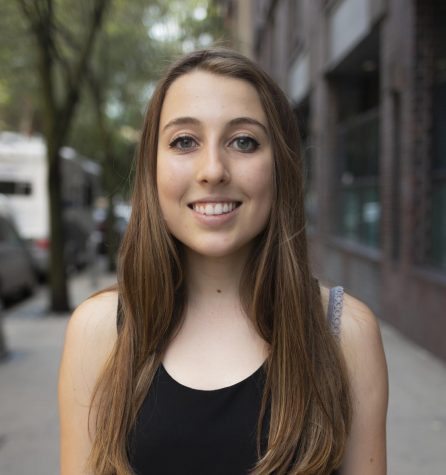Gabor Simonovits
October 10, 2017
It can often be disheartening to compare my own experience of immigrating to the United States with the accounts of other ethnic groups attempting the same plight. I moved from England to a suburb of Chicago four years ago. Using my parents as a crutch to fill in applications, paperwork and generally coordinate the ugly details of relocating to a country that, with great irony, does not welcome newcomers with open arms.
When I think back, my experience was extremely insulated. My family obtained documentation relatively quickly, cruised through security checks and customs at the airport without a hitch and took no time to settle and assimilate in American culture.
It only takes a quick glance at the headlines to notice that my story is not a universal one. The racial profiling and subsequent disproportionate attention doled to certain religious groups at the Transportation Security Administration is a single example of the challenges that continues to affect certain groups arriving in the U.S. The experiences of immigrants differ vastly, and with that in mind I spoke to Gabor Simonovits, a Ph.D. candidate and teaching assistant within the Department of Politics at NYU.
Simonovits did it alone — moving to America from Budapest, Hungary in 2011 at the age of 24. Now he is teaching a couple of recitations for the class, Power and Politics in America. He moved for the increased academic opportunities.
“I wanted to do a Ph.D. and U.S. universities seemed much better,” Simonovits said. “They are, too.”
When Simonovits first arrived, he lived in Palo Alto, California. He had visited once before and loved the weather, but was not as enthusiastic as the small town life. New York City makes a lot of sense in that context.
He didn’t have a driver’s license when living in California, which he found to be frustrating, but it was the physical separation from his loved ones that initially concerned him.
“I was worried that it would be difficult to fit into a new cultural context and not seeing my friends, family or girlfriend at the time,” Simonovits said. “I was excited about studying at a top school.”
Although Simonovits didn’t have his parents to usher him along, he said that obtaining the paperwork to live and work in the U.S. was not especially difficult. It was certainly not the most challenging part of the move.
“It was hard emotionally,” Simonovits said, reflecting on his move from six years ago. “But the paperwork was fine as the university took care of it.”
A version of this article appeared in the Tuesday, Oct. 10 print edition. Email Jemima McEvoy at [email protected].
























































































































































